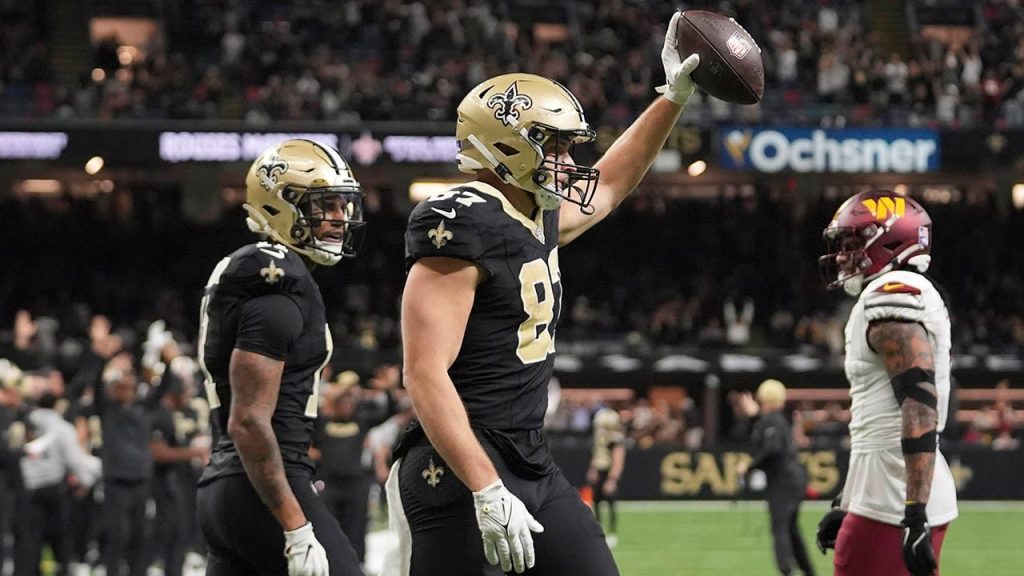The final seconds of the Week 15 NFL matchup between the Washington Commanders and the New Orleans Saints were marred by a controversial clock stoppage that ignited a firestorm of criticism directed at the officiating crew. With the Saints trailing by a single point and positioned tantalizingly close to the end zone, the inexplicable intervention of a sideline official robbed them of precious seconds, potentially altering the outcome of the game and sparking debates about the integrity of NFL officiating.
The sequence of events unfolded with dramatic tension. On a crucial 4th-and-3 play with a mere 17 seconds remaining, Saints quarterback Spencer Rattler connected with tight end Foster Moreau for a first down, advancing the ball to the Washington 1-yard line. As the Saints scrambled to line up for the next play, aiming to capitalize on the momentum and score the go-ahead touchdown, a sideline judge inexplicably halted the game clock. This unexpected stoppage, lasting for approximately three seconds, disrupted the Saints’ hurried efforts and allowed the Commanders’ defense to regroup.
Rattler, recognizing the dwindling seconds, quickly spiked the ball to stop the clock officially. However, the damage had been done. The unwarranted intervention had shaved off precious time, leaving only three seconds on the clock – a significantly tighter window for the Saints to execute their game-winning play. While Rattler managed to connect with Moreau for a touchdown on the ensuing play, tying the game at 19-19, the subsequent two-point conversion attempt failed, handing the Commanders a narrow 20-19 victory.
The controversial clock stoppage immediately became the focal point of post-game discussions. Fans and analysts alike questioned the sideline judge’s decision, emphasizing its potential impact on the game’s outcome. The Saints, robbed of valuable seconds, were left with an extremely limited timeframe to execute their final plays, potentially influencing their strategic choices and ultimately contributing to their narrow defeat. The incident fueled existing concerns about the consistency and accuracy of NFL officiating, highlighting the need for greater accountability and transparency in the decision-making process.
Referee Shawn Hochuli, addressing the controversy in a post-game pool report, admitted the error, stating, “The covering official mistakenly stopped the clock in that situation. The clock should not have stopped.” However, his explanation failed to quell the growing criticism. Hochuli further clarified that the situation was not reviewable, a point that further frustrated fans and analysts who argued that such a consequential error should be subject to review to ensure the fairness of the game. When pressed further about the officials’ awareness of the mistake, Hochuli offered a terse response, repeating that the clock stoppage was a mistake and not reviewable, effectively shutting down further inquiry.
The incident underscores the crucial role of officiating in professional sports and the potential consequences of even seemingly minor errors. In this case, the unwarranted clock stoppage, although brief, occurred at a critical juncture in a closely contested game, potentially influencing its final outcome. The lack of a review mechanism for such errors adds another layer of complexity to the debate, raising questions about the adequacy of current NFL rules and procedures in addressing officiating mistakes. The incident serves as a reminder of the ongoing need for improved officiating standards and greater transparency in the NFL, ensuring that the integrity of the game is upheld and that outcomes are determined by the players on the field, not by officiating errors. The fallout from this controversial clock stoppage is likely to continue, prompting further discussions about the role of officiating, the need for review mechanisms, and the overall fairness of the game.

